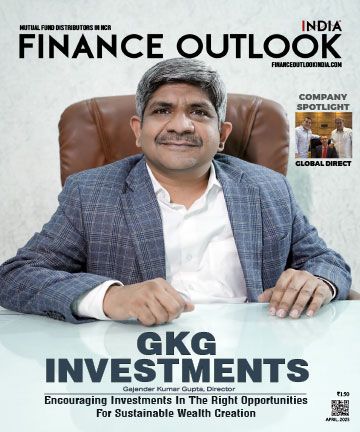Sanath counts over 20 years of banking experience at Commercial Bank. Sanath is an Associate Member of the Institute of Bankers – Sri Lanka and a Fellow of the Institute of Certified Management Accountants of Sri Lanka. He was presented with the Seylan Bank Gold Medal for being the youngest candidate to complete AIB (Sri Lanka) for the year 1993. He is a visiting lecturer for the “Master of Business Administration” degree programme at the University of Colombo.
Sustainability as a core value of an enterprise is no longer the academic concept it once was. Around the world, companies are adopting sustainable practices to a greater extent in recognition of the importance of the triple bottom-line. Many banks are at the forefront of this movement towards sustainability, and in Sri Lanka, the Commercial Bank of Ceylon, the country’s largest private sector bank, has already achieved the milestone of becoming the first carbon neutral financial institution on the island.
Although sustainability can be an all-encompassing concept, its most common manifestation is the environment. Businesses are increasingly cognizant of the fact that climate change can result in disastrous environmental effects and have serious macroeconomic impacts. While banks are not major polluters of the environment in terms of their own operations, they can be a driving force in helping the planet achieve the United Nations (UN) Sustainable Development Goals (SDGs) by influencing their customers, and their borrowers in particular, to make their operations more eco-friendly. At the same time, banks must also adopt Green Banking – the process of transforming their internal operations to lower or eliminate their environmental impact through initiatives like IT innovations that reduce the use of resources such as paper, preserving water and using renewable energy, in addition to the provision of sustainable finance – the development of financial products that encourage environmentally-friendly manufacturing and operations.
Commercial Bank has also revolutionised digital banking by introducing a feature to measure and offset customer impacts on the environment.
Commercial Bank was one of the first to apply the Social and Environmental Risk Management System (SEMS) in Sri Lanka to screen lending projects to contain practices that could harm the environment and was the first bank in Sri Lanka to develop a Green Financing taxonomy. This has ensured that the Bank provides lending and carries out business with only environmentally-friendly organisations. We finance projects that focus on renewable energy, energy and resource efficiency, waste management, emission reductions, smart agriculture and green buildings among others under our Green Financing portfolio, these initiatives are geared towards the fight against climate change, meeting the United Nations Sustainable Development Goals 7 and 12: Affordable and Clean Energy, and Responsible Consumption and Production. Procedures and workflow within the framework of SEMS ensure that the Bank’s lending is to environmentally sustainable, socially acceptable, and economically viable projects.
In its commitment to enable the country’s transition to a green, inclusive and sustainable economy, Bank also pledges to actively contribute to achieving selected 7 Sustainable Development Goals (SDGs) prioritized as most aligned to Bank’s philosophy. They are No 4, Quality Education, No 5 Gender Equality, No 7, Affordable and Clean Energy, No 8 Decent Work and Economic Growth, No 9 Industry, Innovation and Infrastructure, No 12, Responsible Consumption and Production and No 17, Partnership for Goals. These SGD’s are entwined with the strategic direction of the Bank; and realizing them will mean the Bank achieving its broader business goals in the long term.
Commercial Bank was one of the first to apply the Social and Environmental Risk Management System (SEMS) in Sri Lanka to screen lending projects to contain practices that could harm the environment.
Commercial Bank has also revolutionised digital banking by introducing a feature to measure and offset customer impacts on the environment, in one of our flagship mobile banking apps branded ‘Flash Digital Bank Account.’
Another important tool in the Bank’s adoption of sustainable finance is the International Finance Corporation’s (IFC’s) Climate Assessment for Financial Institutions or CAFI - a digital, web-based platform that helps banks and other financial institutions to assess the climate eligibility, and measure the development impact of, the projects they finance.Using CAFI, we are able to verify whether a project meets internationally agreed-upon criteria for climate finance. The platform includes criteria for a range of categories: adaptation, energy efficiency, green buildings, renewable energy, transport, water efficiency, and more.IFC clients and partnering financial institutions that have received climate-finance investment or advisory services can access CAFI.
Commercial Bank of Ceylon has the distinction of being recognised by the IFC for recording the highest number of climate finance transactions in South Asia in 2022 and 2021.To date, IFC clients have used CAFI to report more than US$ 9.9 billion of climate loans disbursed; annual avoidance of more than 24.7 million tons of greenhouse gas emissions; 41.4 terawatt hours of renewable energy generated; 2.4 million square meters of green area built; and 2.3 million cubic meters of water saved.
Besides lending to support Sustainable and Green operations, we have also focused on migrating customers to paperless banking, improving efficiency in the use of energy, water and other resources in our own operations and supporting community initiatives that help conserve habitats and the environment. As part of our strategy to migrate customers to sustainable digital banking channels, we have developed six banking apps and social network banking via WhatsApp and Viber. An indication of the success of these efforts is the 246% growth in transactions via digital channels we achieved in 2022. In terms of improving efficiency in the use of energy in our operations, the Bank has installed solar panels at 71 of its 270 branches and the conversion to renewable energy sources is on-going. Meanwhile, a mangrove restoration project on the southern coast of Sri Lanka, a marine turtle conservation initiative on the island’s east coast, and the reforestation of a 100-hectare swath of degraded forest habitat in the North Central Province are some examples of our commitment to environmental conservation.
Commercial Bank was the first Bank in Sri Lanka to achieve 100% carbon neutral status and the Bank aspire to achieve net zero status in the longer run, with a realistic view to create a fine balance between greening our operations and continued commitment to sustainable growth of communities and environment preservation. We have identified the far reaching positive consequences of sustainability and the greater impact we can make as the largest private Bank in Sri Lanka towards achieving SDG’s as a country and our strategic focus would continue to champion the cause of sustainable banking and sustainable growth.


